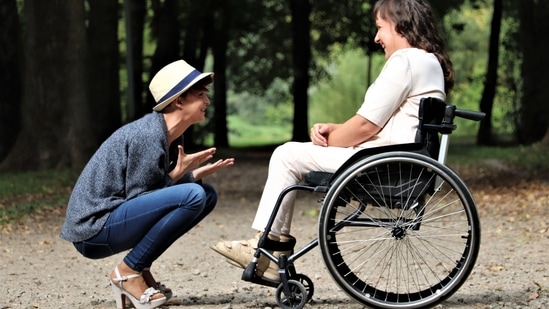
6 easy ways to protect your parents’ brain health: Simple lifestyle changes to reduce risk of Alzheimer's or Parkinson's
6 months ago | 5 Views
Neurodegenerative diseases, such as Alzheimer's and Parkinson's, pose a significant challenge to the ageing population, including our parents, affecting their cognitive and motor functions. Since Neurodegenerative diseases, including Alzheimer's, Parkinson's and Amyotrophic Lateral Sclerosis (ALS), are generally progressive and currently incurable, there is great emphasis by researchers and health professionals alike on lifestyle changes for potentially reducing risk and improving brain health of our parents and other seniors.
The World Health Organization (WHO) has highlighted neurological disorders as a leading cause of disability and death in the senior population, with significant increases in prevalence and associated costs. In the absence of disease-modifying therapies, these lifestyle modification strategies offer a promising approach to reducing risk and improving the quality of life for seniors.
Since evidence suggests that adopting specific lifestyle changes can mitigate the risk and delay the onset of these conditions, here are a few expert tips for your parents and other seniors -
1. Dietary Adjustments:
Dr PN Renjen, Senior Consultant - Neurology at Indraprastha Apollo Hospitals, suggested in an interview with HT Lifestyle, “A diet rich in antioxidants, omega-3 fatty acids, and vitamins can support brain health. The Mediterranean diet, emphasizing fruits, vegetables, whole grains, nuts, and fish, has been associated with reduced cognitive decline. Regular consumption of leafy greens, berries, and fatty fish provides essential nutrients that combat oxidative stress and inflammation, factors implicated in neurodegeneration.”
Emphasising upon a brain-healthy diet, Sama Beg, Chief Product Officer at Emoha, said, “A healthy diet is the foundation upon which brain health lies. Adequate intake of all nutrients, including fruits, vegetables, whole grains, lean proteins, and healthy fats, provides the nutrition necessary to feed the brain and reduce the risk of neurodegenerative disorders. Some diets, including the Mediterranean and DASH diets, focus on the consumption of fruits, vegetables, whole grains, fish, and healthy fats and have neuroprotective tendencies. For seniors, a caregiver can assist by planning meals that meet these dietary recommendations and address any specific nutritional needs.”
2. Physical Activity:
“Regular exercise is crucial for maintaining cognitive function. Aerobic activities such as walking, swimming, or cycling enhance blood flow to the brain and promote neuroplasticity. Resistance training and balance exercises also improve overall physical health and reduce fall risk, which is important for maintaining independence in seniors,” Dr PN Renjen asserted.

Stressing over the power of physical activity, Sama Beg revealed, “Physical activity is one of the most effective and accessible ways to combat cognitive decline. The introduction of daily activities for older adults, such as walking, swimming, aqua aerobics, brisk walking, or cycling, can substantially enhance cognitive functioning. In addition, strength training and balance exercises improve the general physical condition of a person, reduce the risk of falls, and positively influence the quality of life. Seniors need to choose exercises that are non-threatening and enjoyable. Caregivers are well-placed to motivate the patient to engage in physical activities and support them in establishing a consistent pattern of exercise.”
3. Cognitive Training and Mental Stimulation:
Dr PN Renjen shared, “Engaging in intellectually stimulating activities, such as puzzles, reading or learning new skills, can bolster cognitive reserve. Lifelong learning and mental exercises help maintain neural connections and cognitive function, potentially delaying the onset of neurodegenerative symptoms.”

Sama Beg added, “Continuous learning and acquiring new skills can enhance brain plasticity, the brain's ability to adapt and form new connections. Activities that involve solving puzzles, reading, and even social interaction serve to keep the mind sharp. Such group activities or club memberships for seniors will provide the needed mental stimulation and social engagement so important for cognitive health. Caregivers can assist the elderly in engaging in activities like club participation, social events, and community service, among others.”
4. Social Engagement:
According to Dr PN Renjen, “Maintaining social connections and participating in community activities provide emotional support and mental stimulation. Social interactions are linked with lower rates of cognitive decline and can help reduce feelings of isolation and depression, which are risk factors for neurodegenerative diseases.”
5. Caregiving:
Sama Beg opined, “Elder care and caregiving are central to implementing these lifestyle changes effectively. Many caregivers are often the primary support system for seniors and play an important role in promoting and supporting healthy habits. Besides, building strong relationships, fostering trust and offering encouragement may go a long way toward a senior's openness to adapt to and continue these lifestyle modifications. Moreover, caregivers should be mindful of the unique challenges each faces and tailor their approach accordingly, ensuring that the strategies are both practical and sustainable. By creating a supportive environment that prioritises quality healthcare, caregivers can help seniors lead a lifestyle that reduces the risk of neurodegenerative diseases.”

6. Sleep Hygiene:
Highlighting that quality sleep is vital for brain health, Dr PN Renjen said, “Poor sleep patterns and sleep disorders are associated with an increased risk of neurodegenerative conditions. Establishing a regular sleep schedule and creating a restful sleep environment can improve cognitive function and overall health.”
Incorporating these lifestyle changes can help your parents and seniors reduce their risk of neurodegenerative diseases and promote a higher quality of life. Regular assessments by healthcare professionals can further tailor interventions to individual needs, optimising long-term outcomes.
Read Also: Stand up and move around. It can save you from chronic back pain





















